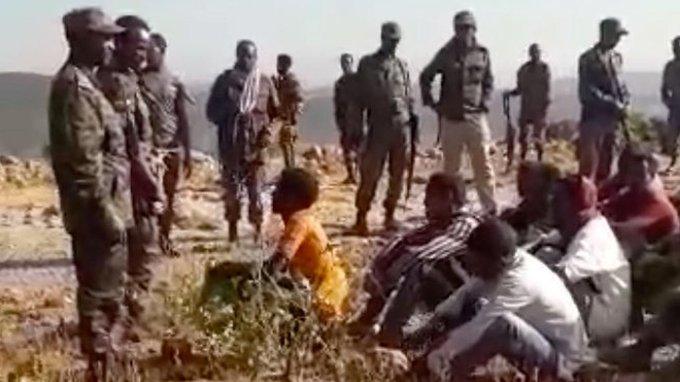Ethiopia's Tigray crisis: Heavy casualties reported after air strike
- Published
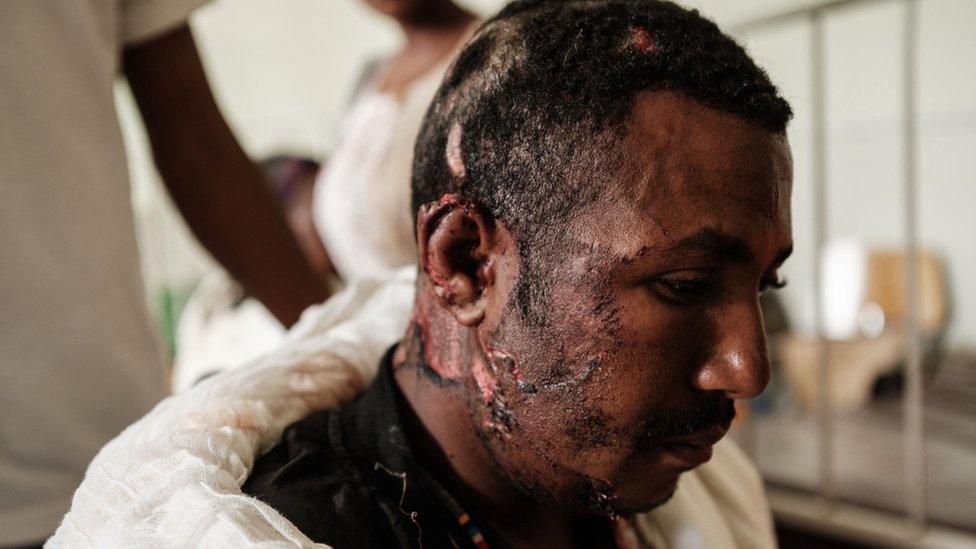
More than 40 people were reportedly injured in the air strike
Dozens of people have reportedly been killed or injured after Ethiopia's air force bombed a market in the northern region of Tigray.
Eyewitnesses told the BBC the Ethiopian air force struck the town of Togoga on Tuesday, 25km (15 miles) from the region's capital, Mekelle.
The Ethiopian military denied targeting civilians, saying it carried out the strikes to neutralise "terrorists".
Tigrayan rebel forces are said to have made advances in recent days.
However, this has been denied by the Ethiopian government.
The International Committee of the Red Cross (ICRC) said it helped evacuate the wounded.
Meanwhile, the UN called on Ethiopia to investigate the reported air strike.
Thousands of people have been killed and millions displaced after conflict erupted almost eight months ago.
What happened in the strikes?
A medical doctor at Mekelle's main Aider hospital told the BBC that at least 60 people were killed and more than 40 were injured.
There are fears the numbers will increase further.
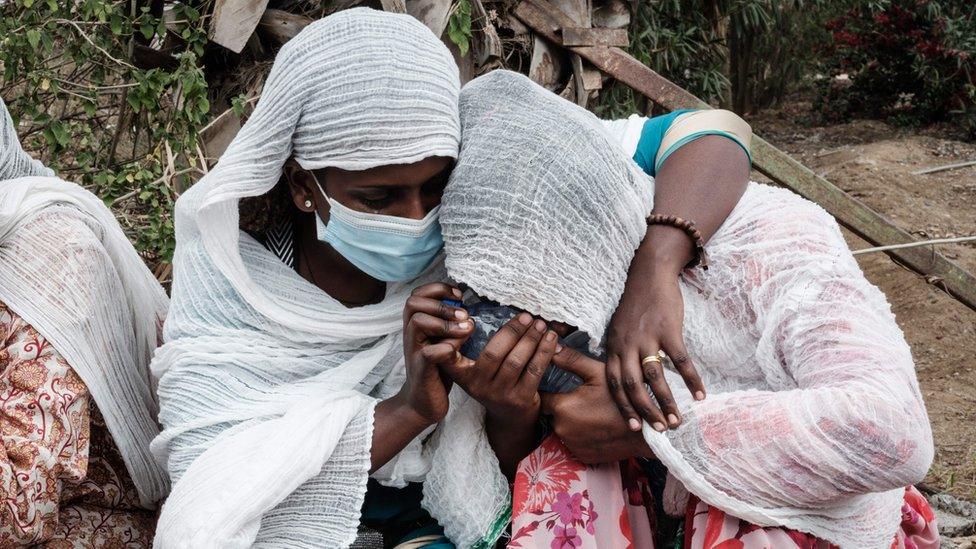
Relatives of injured Togogo residents have been desperately waiting for any news about their loved ones outside Aider hospital
Doctors say they are treating dozens of people, including a two-year-old child left injured by the air strike.
Medical personnel told Reuters the Ethiopian military blocked them from reaching the site of the attack to help others left behind.
A 16-year-old boy told the BBC from Aider hospital that he was struck in the hand by shrapnel and that he saw several people thrown on the ground. He said that the air strike killed a man he knew.
Ethiopia's army said the strikes were against military targets.
"We never carried out an air strike on the market place. How is this possible? The army is capable of accurately hitting its targets. We conducted air strikes, but only on certain targets," a spokeswoman said.
What's the background to the conflict?
Ethiopia's government, aided by troops from neighbouring Eritrea, launched an offensive in November last year to oust the region's then ruling party, the Tigray People's Liberation Front (TPLF). By the end of the month, it declared victory.
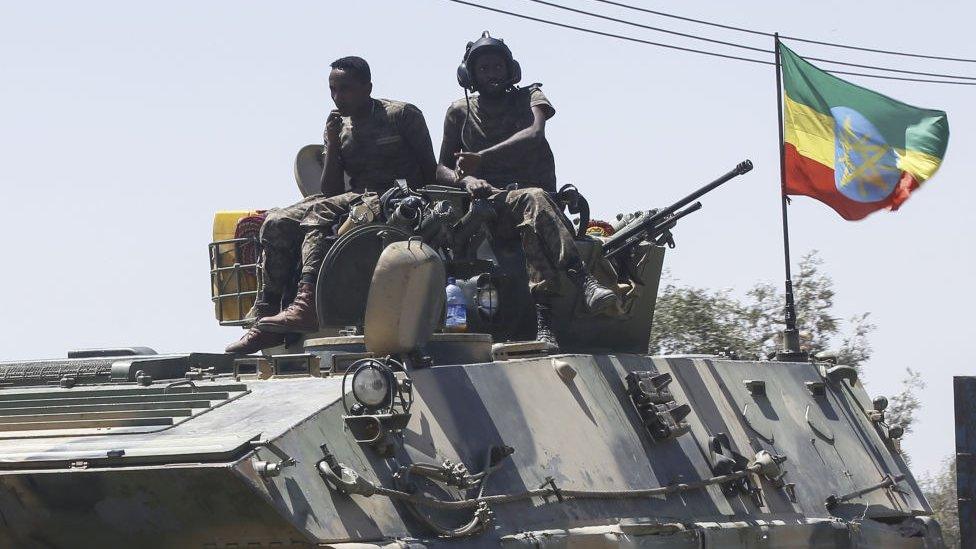
Ethiopia's army took control of Tigray's capital, Mekelle, in November last year
The TPLF had had a massive falling-out with Prime Minister Abiy Ahmed over his political reforms, though its capture of federal military bases in Tigray was the catalyst for the invasion.
The TPLF has since joined forces with other groups in the region to form the Tigray Defence Force (TDF) rebel group.
Abiy Ahmed: We're not pushing out the Eritrean troops
Speaking to the BBC on Monday after casting his vote in the twice delayed national election, Mr Abiy said he was working with the troops in neighbouring Eritrea to get them to leave but said he would not "push them out".
They are accused of carrying out massacres, mass rape and blocking humanitarian aid - charges Eritrea has denied.
Related topics
- Published15 February 2021
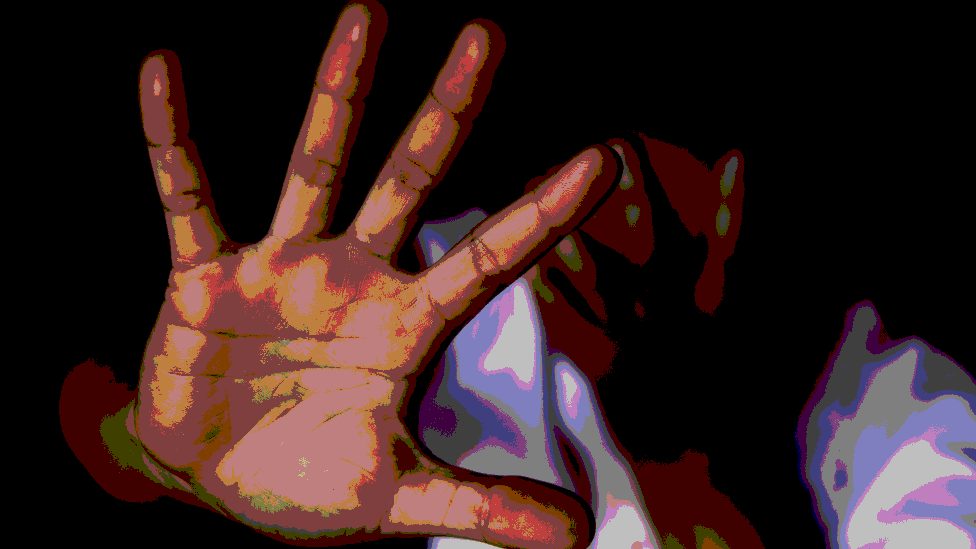
- Published26 February 2021
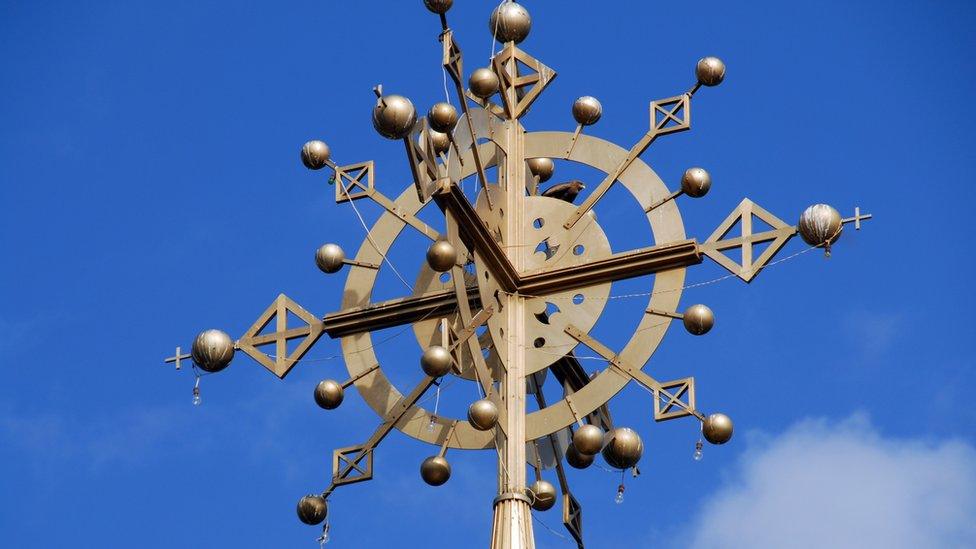
- Published11 June 2021
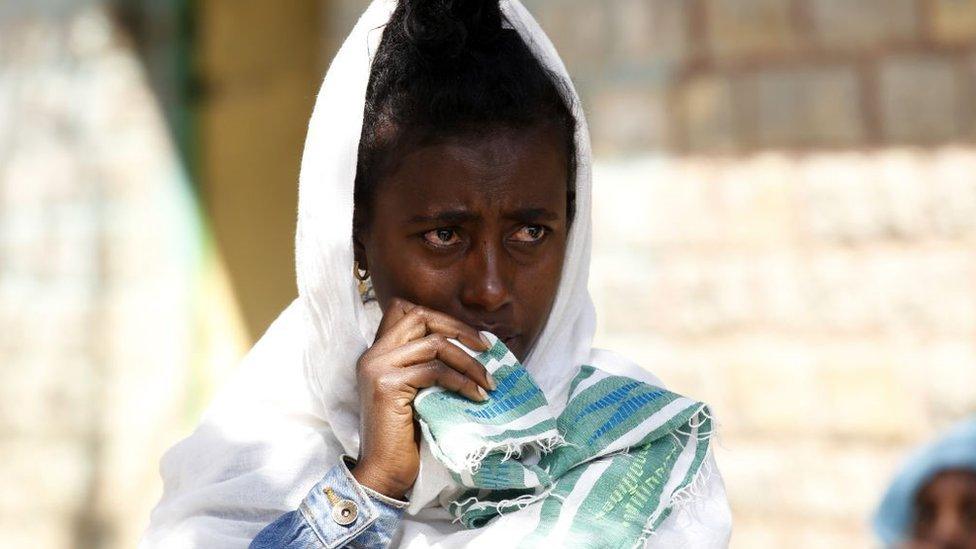
- Published19 June 2021
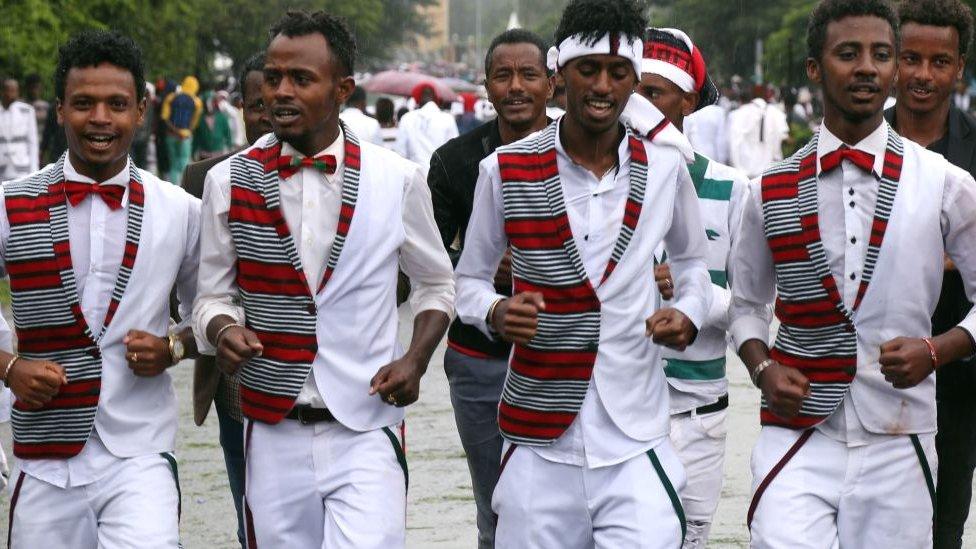
- Published18 June 2021
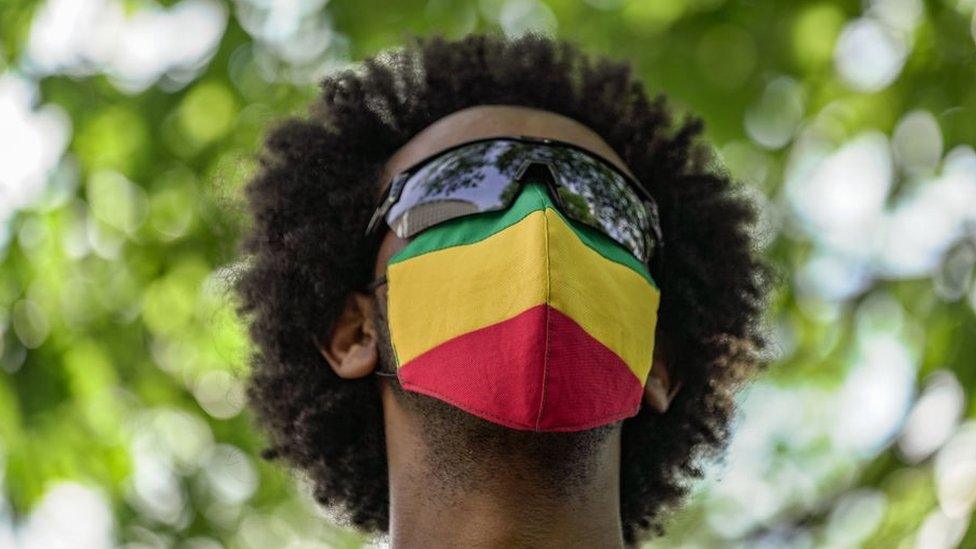
- Published11 October 2021
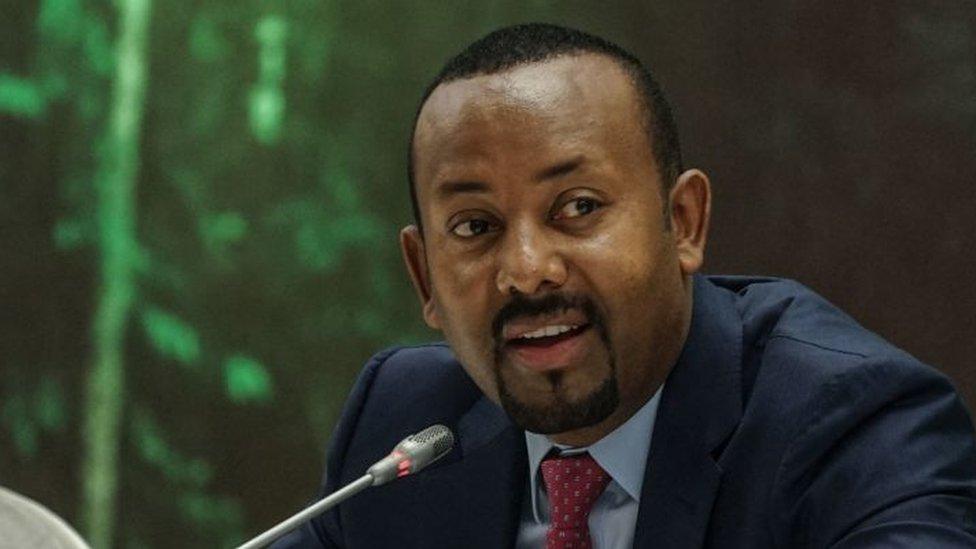
- Published16 June 2021
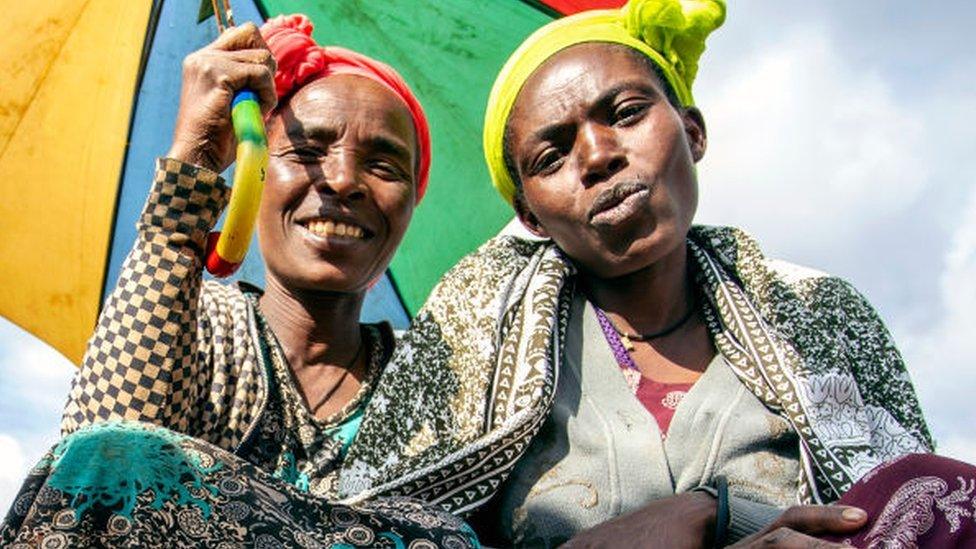
- Published1 April 2021
